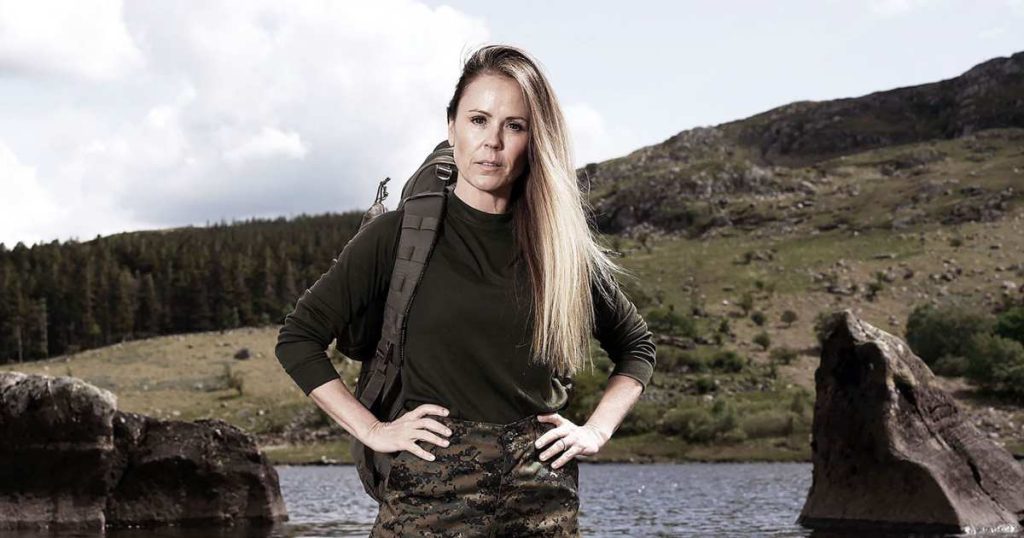Trista Sutter’s departure from the grueling reality show, Special Forces: World’s Toughest Test, appeared sudden to viewers, but her exit was precipitated by a confluence of factors, including a severe bout of hypothermia and a profound introspective experience. While the episode depicted a seemingly abrupt decision, Sutter reveals that the unseen portions of the show, particularly a “mirror room” exercise and interactions with the directing staff (DS), played a significant role in solidifying her resolve to withdraw. Her experience on the beach, where she pushed her physical limits to the brink of fainting, coupled with the subsequent introspection, led her to a place of peace and acceptance regarding her limitations in the face of the extreme challenges posed by the show.
The physical toll of the show’s initial challenges was substantial. Sutter’s experience with hypothermia was severe, leaving her with blue lips and extreme lethargy, a stark reminder of the harsh conditions faced by the recruits. Despite her desire to persevere and reach the later stages of the competition, the physical strain, exacerbated by the hypothermia, made it increasingly difficult for her to continue. The beach challenge, where she confided in DS member Rudy Reyes about her near-fainting episode, highlighted her determination, as she refused medical attention, which would have resulted in her immediate withdrawal. This incident, though physically taxing, garnered respect from Reyes and reinforced Sutter’s own resilience.
The unaired “mirror room” segment proved to be a pivotal moment for Sutter. This introspective exercise, designed to force recruits to confront their inner demons and motivations, allowed Sutter to assess her position in the competition. While she had hoped to reach this stage later in the show, the earlier-than-expected opportunity for self-reflection, coupled with the physical challenges she had already endured, provided clarity. The conversations with DS members Billy Billingham and Jovon Quarles further solidified her decision, offering a sense of human connection amidst the demanding environment. This combination of physical strain and deep introspection allowed Sutter to recognize her limits and find peace in her decision to leave.
Sutter’s decision to withdraw wasn’t solely based on her physical struggles. A strong sense of faith and spirituality also played a role. The sighting of the number 444, which she interprets as an angelic sign, reinforced her belief that she had extracted valuable lessons from the experience and that her journey on the show had reached its natural conclusion. This spiritual reassurance, coupled with the warning from the staff that the challenges would only intensify, solidified her resolve to prioritize her well-being. The combination of physical limitations, introspective realizations, and spiritual guidance created a powerful confluence of factors leading to her departure.
The show’s demanding physical requirements, which included carrying heavy packs and enduring strenuous runs, were particularly challenging for Sutter. She candidly admits that her physical capabilities were not on par with the professional athletes and experienced adventurers also participating in the show. The added burden of carrying her pack, which at times was shouldered by fellow recruit Golden Tate, further highlighted the physical disparity between her and some of the other participants. While she was determined not to be a burden to her teammates, the physical strain of the challenges began to outweigh her desire to persevere. Recognizing her limits and prioritizing the team’s overall success became paramount in her decision-making process.
Sutter’s decision to leave, though personally difficult, was ultimately rooted in self-awareness and respect for the magnitude of the challenges. Her exit was not a sign of weakness, but rather a testament to her ability to recognize her limitations and prioritize her well-being. Reflecting on her time on the show, Sutter expresses immense gratitude for the experience, the camaraderie, and the personal growth she achieved. The lessons learned, the friendships forged, and the renewed sense of self-confidence outweigh the disappointment of her early departure. She acknowledges a degree of regret in hindsight, seeing the challenges faced by those who remained, but ultimately finds peace in the decision she made in that pivotal moment. The experience, though brief, served as a catalyst for personal growth and reaffirmed her belief in her ability to face and overcome difficult challenges.

